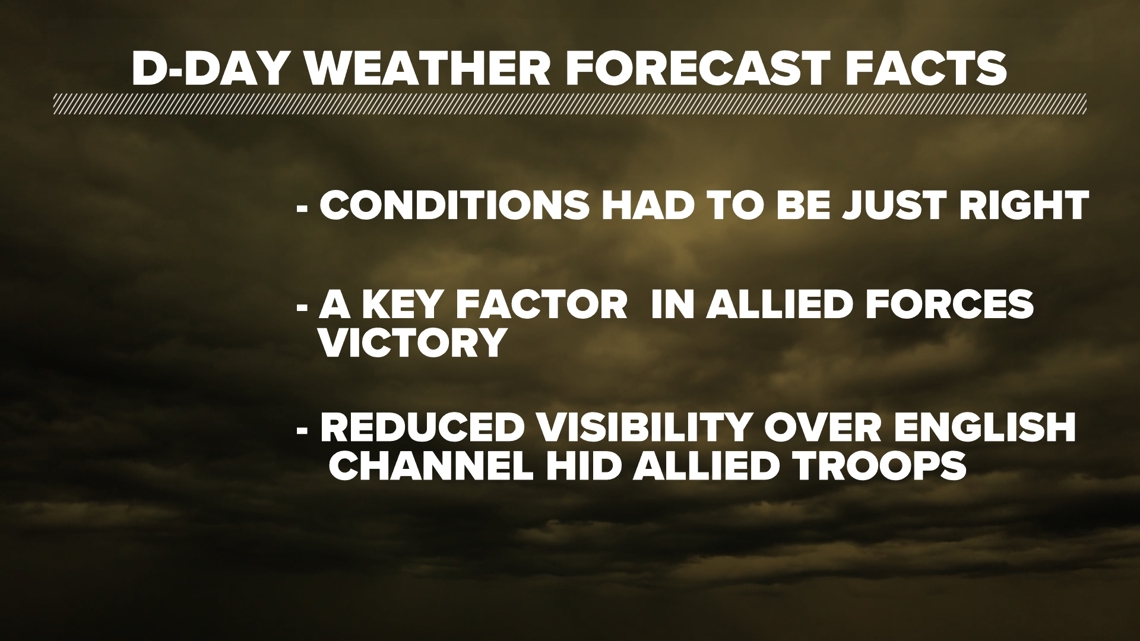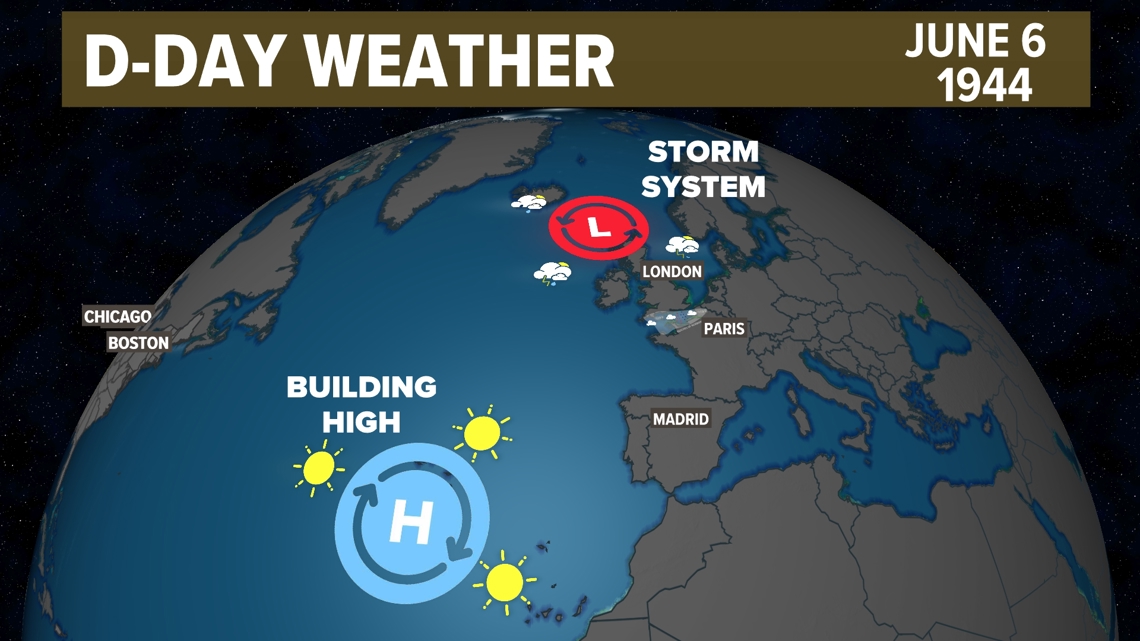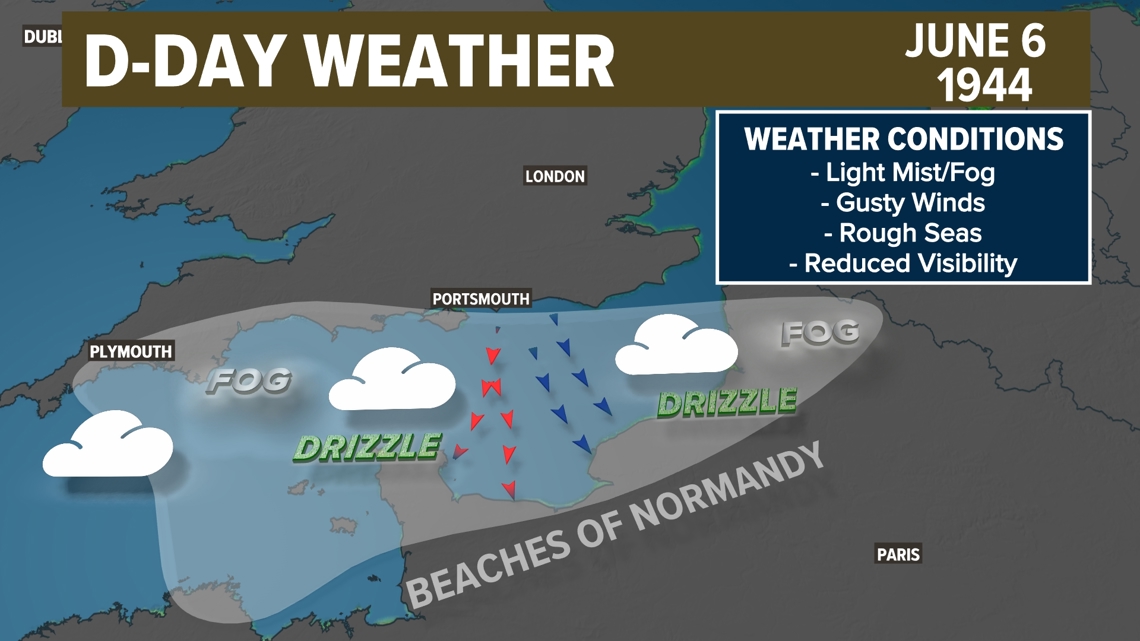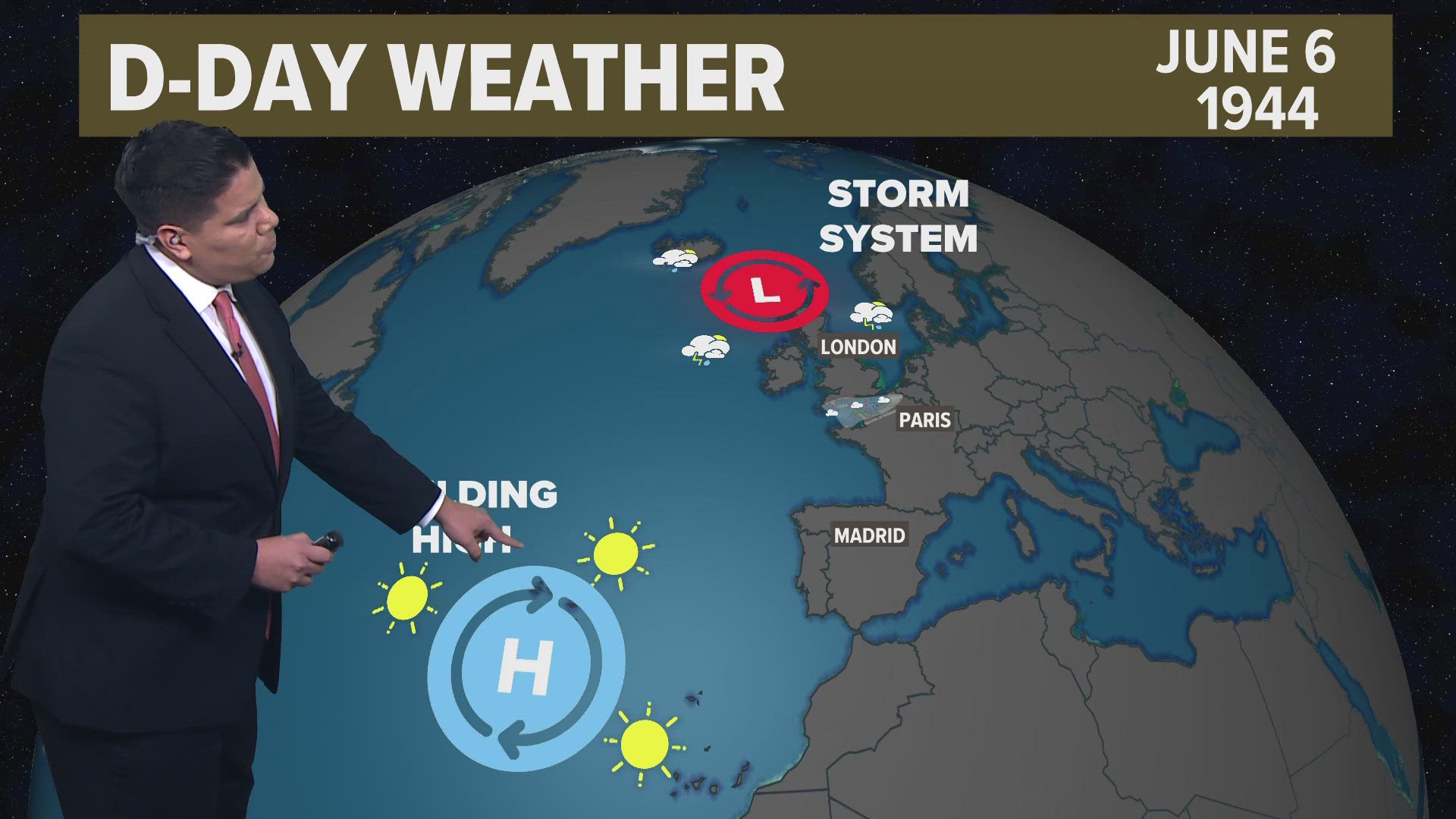HOUSTON — Known as one of the most important battles in modern history, the weather forecast played a crucial role on history changing military decisions. These decisions included Allied Forces crossing the English Channel, storming the beaches of Normandy in German-occupied France. According to the U.K. Met Office, the forecast was compiled using data gathered from air reconnaissance, ship observations, U.K observation sites, and from the Germans once the enigma code was broken by the allies.
As we go back in time and take a look at the weather conditions that day, weather conditions had to be just right. The person leading the efforts on a successful forecast was Captain James Stagg, Royal Air Force and Chief Meteorological Officer.
The U.K Met Office says that the ideal weather conditions for a successful landing included a moonlit night, dawn had to be at low tide, and light winds and little low clouds throughout the day. However, the weather conditions that day proved to be nothing of the sort.


Handwritten weather maps from 1944 showed that the weather conditions in the days prior were less than ideal. A low-pressure storm system was situated over the northern U.K causing storms, high winds, and rough seas. However, a building high-pressure system to the southwest over the Atlantic Ocean was going to provide a window of opportunity for the weather to settle on June 6, 1944.


When Allied Forces launched across the English Channel towards the beaches of Normandy, conditions were still treacherous. Seas were rough, winds were high, and visibility was reduced from low clouds, fog, and mist.
However, the reduced visibility proved to be the key factor of the Allied Forces victory. It covered the horizon so that German Nazi forces could not see Allied Forces approaching.
Nazi German forces believed that rough weather conditions over the U.K and France were going to prevent any attack by land or air in early June of 1944. This caused many commanders and generals lessen the guard over the beaches of Normandy, ultimately leading to a successful surprise attack leading to Allied Forces victory.



